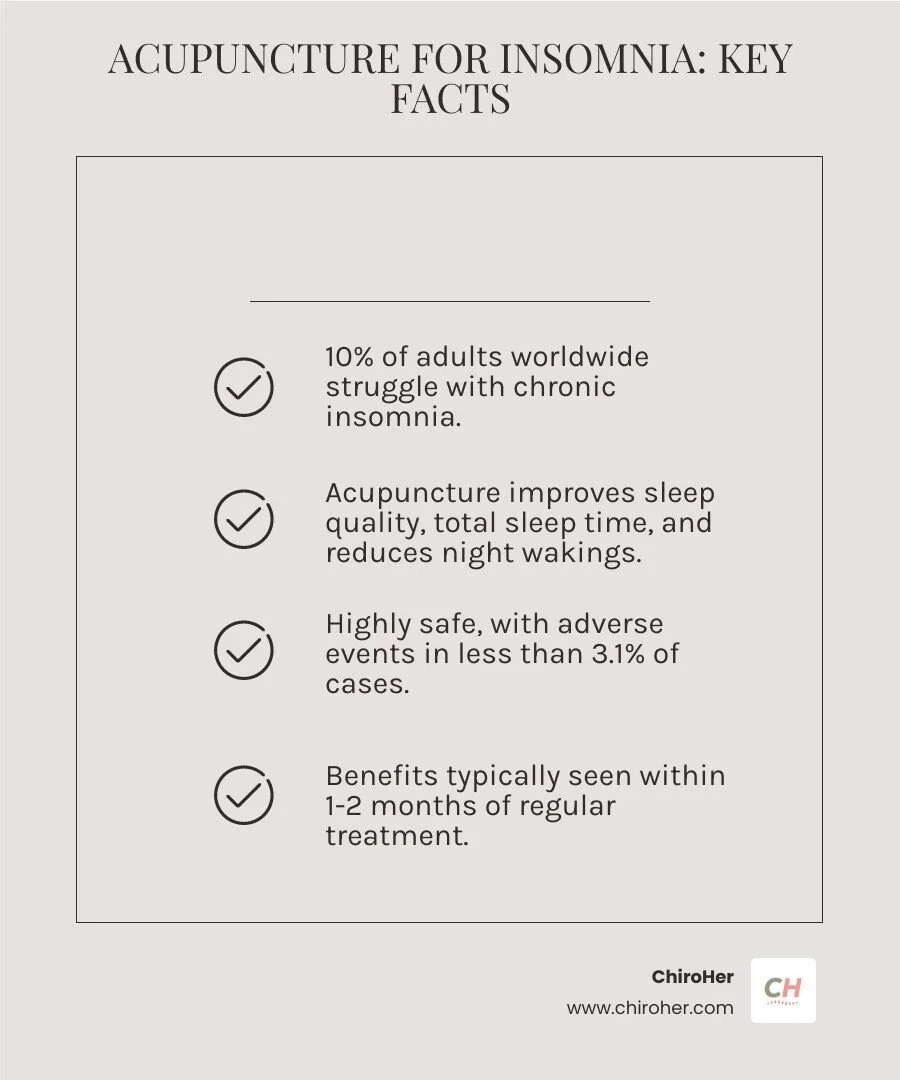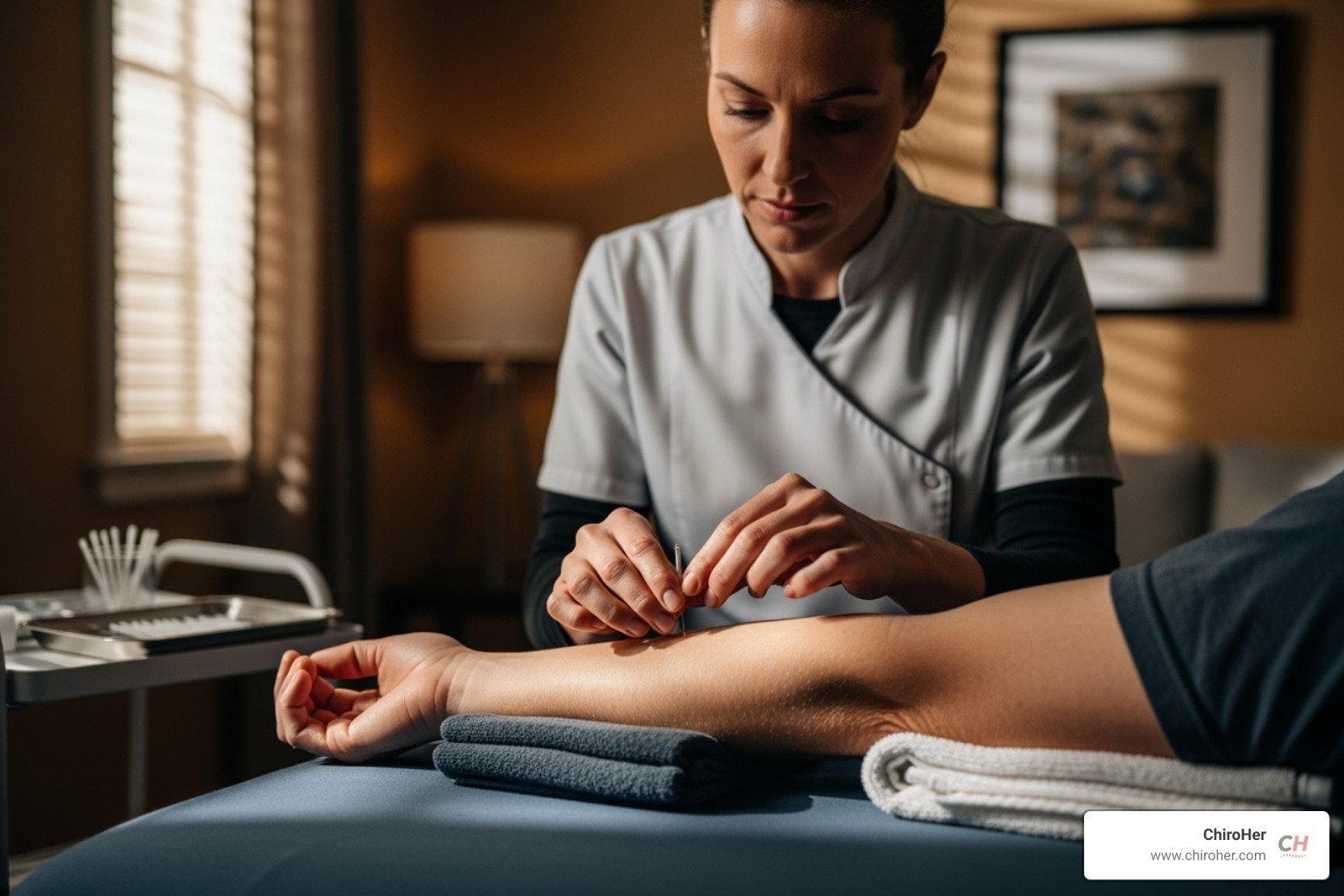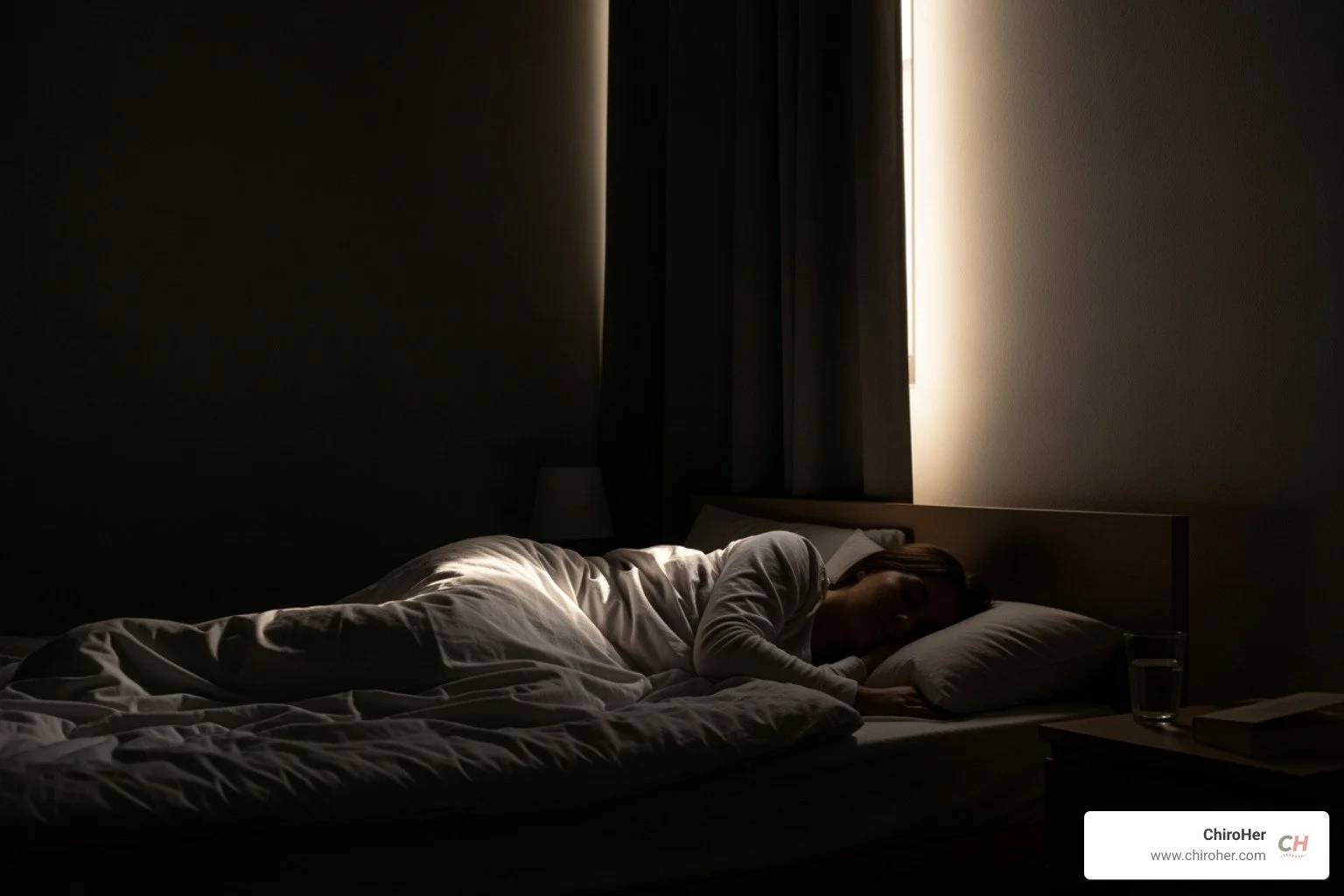The Point of Rest: Unpacking Acupuncture's Role in Insomnia Treatment
Tossing and Turning? An Introduction to Insomnia and Acupuncture
Acupuncture for insomnia is an evidence-based treatment that can improve sleep quality, increase total sleep time, and reduce nighttime wakings. Here's what you need to know:
Effectiveness: Clinical trials show acupuncture improves subjective sleep quality, reduces sleep onset latency, and improves sleep architecture with minimal side effects.
Safety: Studies of 66,000+ treatments found adverse events were mild and transient, occurring in less than 3.1% of cases.
Treatment Duration: Most people benefit from regular sessions over 1-2 months.
How It Works: Acupuncture may regulate neurotransmitters, balance the autonomic nervous system, and reduce the hyperarousal state associated with insomnia.
Comparison to Medication: Research shows acupuncture can be more effective than some sedative medications for improving sleep quality and daytime functioning.
If you're one of the estimated 10% of adults worldwide struggling with chronic insomnia, you know the frustration of sleepless nights and foggy days. Standard options like medication can have side effects, while other therapies may not be accessible. This is where acupuncture, an ancient practice backed by modern research, offers a promising alternative.
Studies show that regular acupuncture treatments can improve sleep quality, reduce nighttime wakings, and increase total sleep time. It works with your body's own systems by influencing neurotransmitters, helping regulate melatonin, and calming the hyperarousal state that keeps you awake. Unlike some medications, it does so without the risk of dependency or morning grogginess.
Hi! I'm Dr. Michelle Andrews, founder of ChiroHer in Oklahoma City. While my primary expertise is in chiropractic care, I work closely with patients exploring complementary approaches like acupuncture for insomnia as part of a holistic wellness strategy. I've seen how integrating evidence-based therapies can improve sleep and health, especially for busy professionals and moms.
In this guide, we'll explore the research on acupuncture for insomnia, how it works, and what to expect from treatment.
The Science and Practice of Acupuncture for Insomnia
If you're tired of sleepless nights, it helps to understand how acupuncture might work to restore rest. This ancient practice is now understood through modern science as a valuable tool for influencing your nervous system and promoting sleep.
How Acupuncture Works for Sleep
Originating in Traditional Chinese Medicine, acupuncture is based on the principle of balancing the body's life energy, or Qi. Thin, sterile needles are inserted at specific points to clear blockages and restore healthy flow, which is believed to support restfulness.
Modern research provides a scientific explanation for these effects, showing that acupuncture acts as a neuromodulator. It influences the nervous system in several ways that directly impact sleep:
Regulates Neurotransmitters: It can increase levels of GABA, the brain's main calming chemical, while also balancing serotonin and norepinephrine, which are key to mood and sleep cycles.
Boosts Melatonin: Preliminary studies suggest acupuncture can improve the nighttime secretion of melatonin, your body's natural sleep hormone.
Reduces Hyperarousal: For those whose minds race at bedtime, acupuncture helps calm this overactive state by quieting the central nervous system.
Balances the Autonomic Nervous System: It helps shift your body from the "fight-or-flight" sympathetic mode to the "rest-and-digest" parasympathetic state, allowing your body to relax and prepare for sleep.
What the Research Says About Acupuncture for Insomnia
The scientific evidence supporting acupuncture for insomnia is promising. A comprehensive scientific review on acupuncture's effectiveness indicates that it improves both subjective feelings of restfulness and objective sleep measures.
Clinical trials consistently show that acupuncture can:
Increase total sleep time and efficiency.
Reduce the time it takes to fall asleep.
Decrease nighttime awakenings.
Improve sleep architecture by increasing deep and REM sleep.
Studies comparing acupuncture to other treatments are particularly revealing. A 2017 study found it worked better than sham acupuncture for improving insomnia symptoms. Furthermore, a 2013 double-blind study showed real acupuncture was more effective than both sham acupuncture and the sedative estazolam for improving sleep quality and daytime function. A large systematic review even found acupuncture to be more effective than some medications for increasing total sleep duration.
Acupuncture is also effective for insomnia related to other health issues, including obstructive sleep apnea, depression, anxiety, chronic pain, and pregnancy-related sleep disturbances.
Potential Benefits and Safety Considerations
One of the key advantages of acupuncture is its strong safety profile, especially compared to sleep medications. Beyond better sleep, patients often report reduced anxiety, pain relief, and improved daytime energy and focus.
The U.S. Food & Drug Administration warns about the risks of medications like benzodiazepines, making acupuncture a safe alternative for many. The practice has a strong safety record. Large-scale surveys found that adverse events were mild and temporary, with no serious events reported. More information on safety is available from the National Cancer Institute.
In the U.S., regulations mandate sterile, single-use needles, minimizing risks. The most common side effects are minor bruising or soreness at the needle site. However, you should consult your doctor and inform your acupuncturist if you:
Are pregnant.
Have a bleeding disorder or take blood thinners.
Use a pacemaker (electroacupuncture should be avoided).
Have a compromised immune system.
At ChiroHer, we believe in providing clear information so you can make confident health decisions. Acupuncture offers a safe, effective path to restful nights for many people.
Your Path to Restful Nights
A good night's sleep doesn't have to be out of reach. This section provides practical steps for trying acupuncture and integrating it with other healthy sleep habits for a comprehensive approach to overcoming insomnia.
Preparing for Your First Session
Knowing what to expect can ease any concerns about your first acupuncture appointment.
Your initial consultation involves a detailed conversation about your sleep patterns, health history, and lifestyle. This helps your practitioner create a personalized treatment plan. Most people see significant results with regular treatments over one to two months.
During a session, your practitioner will insert five to 20 ultra-fine needles, which remain in place for about 10 to 15 minutes. The entire appointment typically lasts about an hour. Most people feel a slight prick upon insertion, followed by a dull ache or warmth. The experience is often so relaxing that many people fall asleep on the treatment table. Afterward, you'll likely feel a deep sense of calm that can help prepare you for better sleep that night.
To learn more about our approach at ChiroHer, you can explore more info about our acupuncture services.
Complementary Therapies and Sleep Hygiene
Acupuncture is even more effective when paired with other supportive practices.
Electroacupuncture: This technique passes a mild electric current through the needles, which can be particularly effective for improving sleep quality.
Acupressure: You can apply firm pressure to specific points at home. Key points for sleep include HT7 (Shen Men) on the wrist, SP6 (San Yin Jiao) above the inner ankle (avoid if pregnant), An Mian behind the earlobes, and Yin Tang between the eyebrows.
Other Therapies: Consider integrating cognitive behavioral therapy for insomnia (CBT-I), mindfulness, gentle yoga, or aromatherapy to support your sleep.
Good sleep hygiene provides the foundation for restful nights.
Maintain a consistent schedule: Go to bed and wake up around the same time daily, even on weekends.
Create a relaxing routine: Wind down with a warm bath, reading, or gentle stretching. Avoid screens for at least an hour before bed.
Optimize your bedroom: Keep it dark, quiet, cool, and comfortable.
Limit caffeine and alcohol: Avoid caffeine after 2 p.m. and alcohol in the hours before bed.
Get morning sunlight: Exposure to natural light helps regulate your internal clock.
Finding a Qualified Practitioner
Choosing the right acupuncturist is important for a positive outcome. Always verify that a practitioner is a licensed acupuncturist in your state and holds NCCAOM accreditation through the National Certification Commission for Acupuncture and Oriental Medicine.
Be aware that some healthcare professionals perform acupuncture with minimal training. A fully qualified acupuncturist with extensive education in Traditional Chinese Medicine can better address the root cause of your insomnia. Look for a practitioner who provides patient-focused care and develops a plan specific to your needs.
At ChiroHer, we believe in treating the whole person. Our holistic approach integrates chiropractic care, acupuncture, and other therapies to support your overall wellbeing. We serve communities across Oklahoma City, including Yukon, Edmond, Nichols Hills, Del City, Mustang, and Moore. Our ChiroHer services are designed for women and prenatal clients, but we welcome anyone seeking compassionate, evidence-based care. If you're looking for a partner in your wellness, explore more info about our holistic wellness approach.
We're here to help you on your journey toward more restful nights.
This article is for informational purposes only and does not constitute medical advice. The information contained herein is not a substitute for, and should never be relied upon for, professional medical advice. Always talk to your doctor about the risks and benefits of any treatment.




